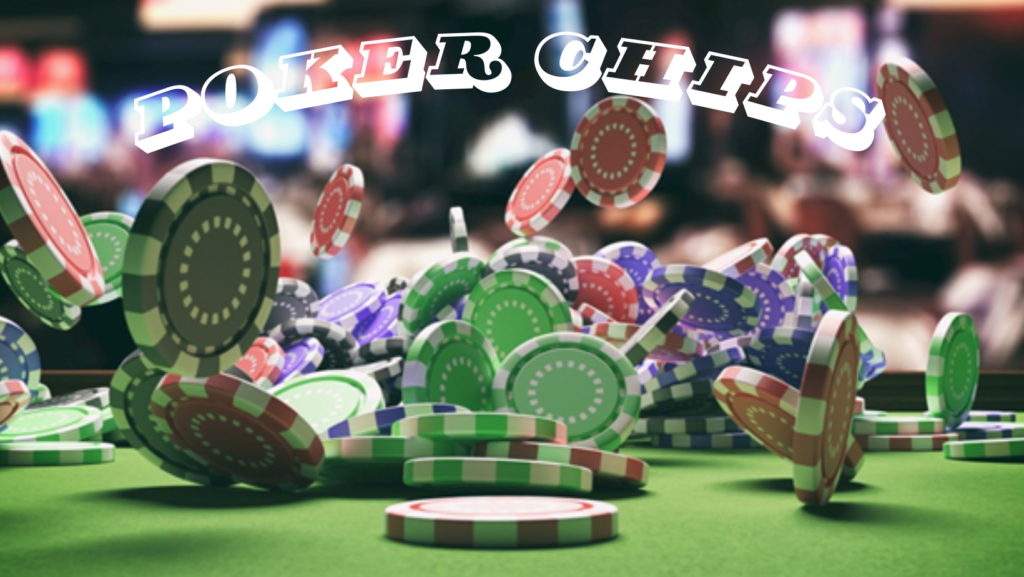Winning Poker Nights: Mastering Chip Allocation in Five Card Draw Variations

Five Card Draw poker chips have always been a go-to choice for poker nights with friends. It’s easy to learn, and the thrill of drawing cards and making hands never gets old. But did you know that the world of Five Card Draw isn’t limited to just one game? It’s a treasure trove of variations, each spicing up the classic rules in its own way. In this blog post, we’ll take you on a journey through these variations and explore the smart strategies behind allocating chips effectively for these exciting twists in the game.
Table of Contents
Section 1: Get to Know Five Card Draw Variations
Subsection 1.1: The Basics of Five Card Draw
Before we dive into the exciting world of variations, let’s brush up on the fundamentals of Five Card Draw. In its classic form, you get five cards, have the chance to swap some or all of them, and aim for the best poker chips hand. It’s a game we all know and love, perfect for laid-back evenings with pals.
Subsection 1.2: Unveiling the World of Variations
Now, here’s the exciting part—variations in Five Card Draw. Think of them as remixes of your favorite songs, each adding a unique flavor to the game. Whether you’re seeking a change of pace or a fresh challenge, these variations have something special. What’s crucial to understand is that each one often demands different strategies and chip allocations.
Section 2: Exploring Common Five Card Draw Variations
Subsection 2.1: Anaconda – Pass the Cards, Pass the Fun
Anaconda takes the classic game and tosses in a wild card—card passing. Players hand cards to their neighbors, turning the table into a whirlwind of unpredictability. But here’s the kicker: chip allocation strategies must adapt to this shifting card dance. We’ll uncover how to distribute chips effectively in the midst of Anaconda’s twists and turns.
Subsection 2.2: Jacks or Better – Aim High, Win Big
Jacks or Better isn’t your typical Five Card Draw. Here, you’re chasing specific hands, like a pair of Jacks or anything better. It rewards a patient and conservative approach. So, how should you dish out your chips when your sights are set on those specific hands? We’ll delve into chip allocation tactics that match Jacks or Better’s unique winning conditions.
Subsection 2.3: Baseball – Where Wild Cards Shake Things Up
Baseball, also known as “Chicago,” throws a curveball with wild cards and extra innings. These quirks can seriously impact your chip allocation choices. We’ll guide you through the strategies you need to navigate the unpredictability of Baseball and make the right chip calls.
Section 3: Advanced Chip Allocation Strategies
Subsection 3.1: Dynamic Poker Chip Values – The Chip Exchange Rate
Imagine giving different values to various poker chips colors or denominations. It’s like running your mini-currency exchange right at the poker chips table. This dynamic chip value approach can be a game-changer. We’ll explain how it works and how you can use it to your advantage in different Five Card Draw variations.
Subsection 3.2: Rotating Chip Leader – Mix Things Up
Ever thought about shaking up your poker night? How about having a rotating chip leader among players? This out-of-the-box idea adds a dose of strategy and unpredictability to the game. We’ll discuss the perks and dynamics of this approach and how it can create a more engaging and dynamic gaming experience.
Section 4: Winning with Smart Strategy
Subsection 4.1: Reading Your Opponents – The Poker Chips
In Poker Chips, information is your secret weapon. Keeping an eye on your opponents’ playing styles, tendencies, and reactions can give you a crucial edge. We’ll stress the importance of paying attention to your fellow players and how this observation can guide your chip allocation decisions.
Subsection 4.2: Bluffing and Mind Games – Chip Tricks and Tactics
Poker Chips isn’t just about cards; it’s about psychology. Effective misdirection and well-timed bluffs can be your trump cards. We’ll explore how you can use chip allocation as a form of bluffing and misdirection, complete with examples of how these strategies can lead to thrilling victories in various Five Card Draw games.
Section 5: Beyond Chips – The Psychological Edge
Subsection 5.1: The Mind Games of Chip Allocation
Prepare to dive into the psychological side of chip allocation. We’ll discuss how your chip distribution choices can become a tool for playing mind games with your opponents. Creating doubt and uncertainty through chip allocation is an advanced tactic that can give you a significant advantage.
Conclusion
In conclusion, Five Card Draw poker chips isn’t just a single game; it’s a versatile universe of variations, each with its own unique strategies for chip allocation. Whether you prefer Anaconda’s card passing, Jack or Better’s strict hand requirements, or the unpredictable twists of Baseball, understanding these strategies can elevate your poker nights with friends. So, the next time you gather around the table with chips and cards, remember that your chip allocation choices can be the key to your victory. Experiment with these strategies, keep an eye on your opponents and embrace the psychological elements of the game. Your journey into the world of Five Card Draw variations has just begun, and the possibilities are endless. Enjoy the game!
FAQ’s
Q1: Is chip allocation strategy really that important in Five Card Draw poker chips variations?
A1: Absolutely. Chip allocation can make or break your game, especially in variations with unique rules and dynamics.
Q2: Can I use the same chip allocation strategy for all variations?
A2: It’s not recommended. Each variation often demands different strategies due to its rules and objectives.
Q3: How do I allocate Poker Chips effectively in Anaconda’s card-passing chaos?
A3: Observe the card movements, anticipate what hands you’ll need, and allocate chips accordingly.
Q4: What’s the key to success in Jacks or Better when it comes to chip allocation?
A4: Be patient and allocate chips conservatively, focusing on hitting those Jacks or Better hands.
Q5: In baseball, how do wild cards affect chip allocation?
A5: Wild cards can change the game quickly, so adapt your chip allocation as the game evolves.
Q6: What’s the advantage of using dynamic chip values?
A6: Dynamic chip values allow you to adjust your strategy mid-game, taking advantage of favorable situations.
Q7: How can rotating chip leaders enhance our poker chips night?
A7: It adds variety and unpredictability, making the game more engaging and challenging.
Q8: Can reading opponents really help with chip allocation?
A8: Yes, it can inform your decisions and give you an edge in anticipating their moves.
Q9: Are chip allocation mind games effective in Poker Chips?
A9: Absolutely. Bluffing with chip allocation can create doubt and make opponents second-guess their decisions.
Q10: Is psychology a big part of chip allocation in poker?
A10: Yes, psychology plays a significant role. Mastering the psychological aspects of chip allocation can lead to strategic advantages.

Unveiling the Magic: Chip Tricks and Techniques for Poker Chips Enthusiasts
If you’ve ever watched a skilled Poker Chips player handle their chips effortlessly, you know there’s more to it than meets the eye. Chip tricks and techniques are not only mesmerizing to watch but can also be a valuable asset in your poker arsenal. In this article, we’re going to delve into the captivating world of chip tricks and techniques, revealing the secrets that can elevate your poker game and impress your fellow players.
Mastering the Basics: Chip Handling
Before we dive into the tricks, it’s essential to get comfortable with basic chip handling. This includes knowing how to stack, shuffle, and riffle chips smoothly. These foundational skills not only make you look like a pro but also ensure you can execute more advanced tricks seamlessly.
Pro Tip: Practice chip handling when you’re not playing to build muscle memory.
The Classic Chip Twirl
One of the most iconic chip tricks is the chip twirl. It’s a simple yet impressive maneuver where you twirl a single chip between your fingers. The key is mastering the balance between control and finesse. With some practice, you can effortlessly twirl chips while waiting for your turn.
Pro Tip: Start with one chip, then progress to multiple chips for a more dramatic effect.
Chip Shuffling Like a Pro
Shuffling chips is a classic move that adds flair to your Poker Chips game. The “butterfly” and the “bridge” shuffle are two popular techniques. The butterfly involves splitting a stack into two and allowing them to intertwine gracefully. The bridge is a stylish way to bring two halves of a stack back together.
Pro Tip: Start with a small stack and work your way up to larger ones as your confidence grows.
The Chip Roll
The chip roll is another eye-catching trick that involves rolling a chip across your knuckles. It’s a skill that can leave your opponents in awe. It’s all about coordination and dexterity. As you master the chip roll, you’ll find it’s a great way to maintain focus and relieve tension during intense poker sessions.
Pro Tip: Begin with a lightweight chip to get the hang of it, and then switch to your standard poker chips.
The Chip Bounce
For those looking to add a playful element to their chip tricks, the chip bounce is a fantastic choice. It involves bouncing a chip off the poker table and catching it skillfully. While it may take some practice to avoid chips bouncing into your neighbor’s drink, it’s a fun trick that can break the ice at the Poker Chips table.
Pro Tip: Use a soft surface for practice to avoid damaging your poker chips.
Incorporating Chip Tricks into Your Poker Strategy
Beyond the entertainment value, chip tricks can have practical applications in your poker strategy. They can help maintain focus, relieve stress, and even project confidence at the table. However, it’s essential to use them judiciously. Overdoing chip tricks can signal inexperience or distraction to your opponents.
Pro Tip: Use chip tricks sparingly and strategically, particularly when you want to make a strong impression or maintain your composure.
Conclusion
Chip tricks and techniques are more than just showmanship; they are a fusion of skill, artistry, and psychology. As you hone these skills, you’ll not only impress your poker buddies but also add an extra dimension to your poker game. Remember that practice makes perfect, so don’t be discouraged if you don’t master these tricks immediately. Over time, you’ll find that they become second nature, enhancing your Poker Chips experience and your reputation at the table. So, let the chips fall where they may, and may your poker nights be filled with flair and finesse.
Read more Card Games related articles here:
- Joining 20jili Tongits Go Clubs: A Step-By-Step Guide To Gaming Excellence
- High Card Poker: A Beginner’s Guide To Winning
- Mastering Blackjack: Your Comprehensive Guide To Blackjack Basic Strategy
- Behind The Blinds: Unveiling The Secrets Of Pocket Aces Mastery
- Stay Ahead Of The Game: Top Strategies For Spotting And Stopping Blackjack Cheats
- Poker’s Hidden Language: Deciphering Player Behavior For Victory
